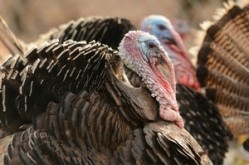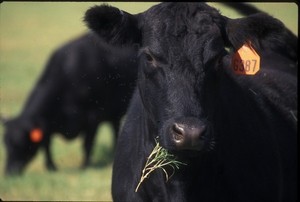Japanese firm wins EU approval for a turkey fattening additive

The Japanese group, Miyarisan Pharmaceutical, had applied to extend the use of its gut flora stabilizer in turkeys for fattening and reared for breeding to the point of lay in the European market.
The company won approval in 2009 for the use of the additive in the EU in fattening chickens and chickens reared for laying and subsequently received similar backing for the inclusion of the antimicrobial in feed for piglets back in 2011.
Now, the European Food Safety Authority (EFSA) has found the antimicrobial, which is traded as Miya-Gold, also has “the potential to improve performance in turkeys for fattening at the minimum recommended dose.”
Veerle Hautekiet, global product manager at Miya-Gold distribution company, Huvepharma, told FeedNavigator.com that the additional approval for the use of the product in turkeys confirms the commitment of the manufacturer to look at maximizing efficient production in all species.
“The turkey market is not as big as the poultry and pig markets, but, still, two million tons of turkey meat is produced annually in the EU. In the large-scale rearing facilities, turkeys are often exposed to stressful conditions, where problems with disease can occur and can lead to serious economic losses.
Probiotics are an additional tool for intensive turkey production next to the existing preventive measures," he said.
Safe for use in turkeys
The extension of use of the Clostridium butyricum strain for turkeys was evaluated by EFSA’s Panel on Additives and Products or Substances used in Animal Feed (FEEDAP) as per Regulation (EC) No 1831/2003 governing EU sanction of additives for use in animal nutrition.
It found no adverse response when the additive was included in turkey diets at 200 times the recommended dose.
The antimicrobial has already been reviewed for safety in the earlier EFSA opinion in terms of its use in chickens for fattening.
The EFSA scientists said they considered new data on the whole genome sequence of C. butyricum FERM BP-2789 when assessing whether the feed additive could be used safely and effectively in turkeys.
They did not find any “issues which would lead to revision of the conclusions on the safety of the product for consumers, users and the environment reached in previous opinions.”
The Panel said it concluded, as a result, that the product is safe for turkeys for fattening at the recommended dose of at 1.25×108CFU per kg of feed.
Weight gain efficiency
Of the four studies submitted by the Japanese company on the use of the antimicrobial in turkeys for fattening, only two showed a significant improvement in performance characteristics, notes the Panel.
“However, a meta-analysis pooling data from these trials showed significant improvement in daily weight gain and feed to gain ratio when Miya-Gold was supplemented at the minimum recommended dose,” added the EU experts.
The additive is also compatible with other antimicrobials used in turkeys for fattening and turkeys reared for breeding such as monensin, diclazuril, maduramycin, robenidine, and narasin, said EFSA.
The scientific opinion of the FEEDAP Panel can be found here.
Mechanism behind growth promoting effect of probiotics unclear
New research from Malaysia found that supplementing the diets of broilers with prebiotics or probiotics may boost body weight gain and feed conversion rates.
Researchers from the Universiti Putra Malaysia report that prebiotic isomalto-oligosaccharides or a probiotic consisting of 11 Lactobacillus strains, or a combination of both, also decrease E.coli levels in the feces of the broilers after 21 days.
“The exact mechanism(s) underlying the growth-promoting effects of probiotic and prebiotic is unclear but it is apparent that both probiotic and prebiotic function by modifying the intestinal microflora,” wrote the researchers in the Journal of the Science of Food and Agriculture.
“Probiotic acts by maintaining the dynamic equilibrium of the microbiota, and prebiotic functions by selectively stimulating the growth and activity of colonic beneficial bacteria. These beneficial effects could reduce digestive disorders and contribute to better health and vitality of the host animal.
Since healthy animals utilize and convert nutrients of ingested feeds effectively into constant growth, the beneficial impact of probiotic and prebiotic on the intestinal microbiota could lead to improved daily weight gain and feed conversion," they added.












